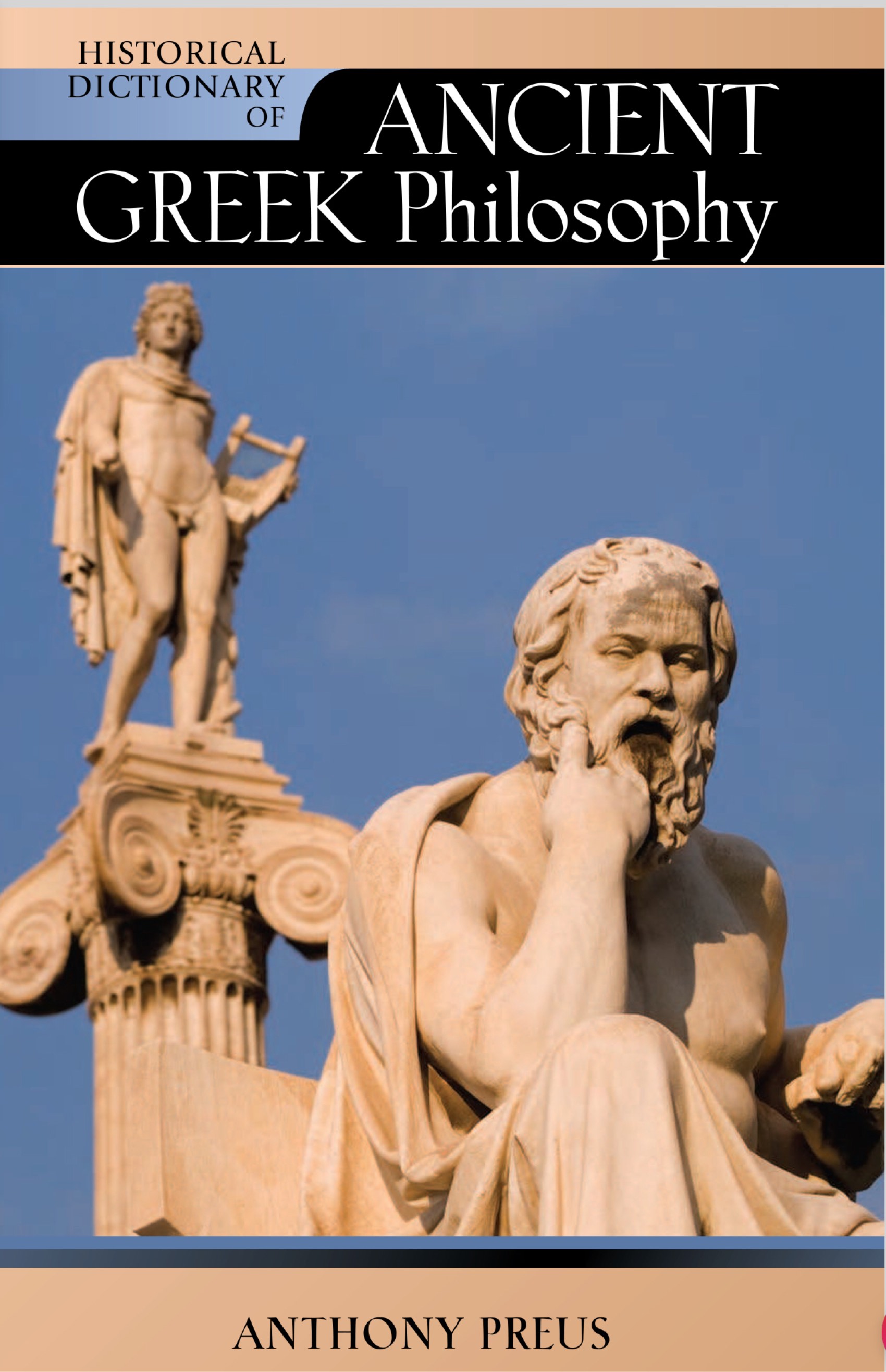Historical Dictionary of Ancient Greek Philosophy
Summary of Historical Dictionary of Ancient Greek Philosophy by Anthony Preus
Anthony Preus’s Historical Dictionary of Ancient Greek Philosophy is a comprehensive reference guide that covers the key philosophers, schools of thought, concepts, and historical developments in ancient Greek philosophy. It provides concise definitions, explanations, and historical context for readers interested in understanding the philosophical traditions that shaped Western thought.
⸻
Key Themes and Structure
1. Overview of Ancient Greek Philosophy
• The book introduces the origins of philosophy in ancient Greece, beginning with Pre-Socratic thinkers and progressing through the Classical and Hellenistic periods.
• Philosophy as a discipline emerged in ancient Greece with figures like Thales, Pythagoras, and Heraclitus, who sought rational explanations for the natural world.
2. Major Philosophers and Their Contributions
• Socrates (469–399 BCE): Known for his Socratic method, which emphasized questioning to seek truth and knowledge. His teachings influenced Plato and Aristotle.
• Plato (427–347 BCE): Developed the Theory of Forms, the concept of an ideal world beyond physical reality, and founded the Academy in Athens.
• Aristotle (384–322 BCE): A student of Plato, he developed a systematic approach to logic, ethics, politics, and science. His school, the Lyceum, became a center for empirical study.
3. Philosophical Schools and Movements
• Pre-Socratics: Focused on cosmology, metaphysics, and natural philosophy. Key figures include Thales, Anaximander, and Parmenides.
• Sophists: Traveling teachers who taught rhetoric and relativism, often challenging traditional beliefs.
• Cynicism (Antisthenes, Diogenes): Advocated simple living and rejection of materialism.
• Stoicism (Zeno of Citium, Epictetus, Marcus Aurelius): Emphasized rationality, virtue, and control over emotions.
• Epicureanism (Epicurus): Taught that the goal of life is pleasure and freedom from fear.
• Skepticism (Pyrrho, Sextus Empiricus): Argued that certainty is impossible, promoting a life of suspended judgment.
• Neoplatonism (Plotinus, Porphyry, Iamblichus): A revival of Platonic thought that emphasized mysticism and the nature of the soul.
4. Key Concepts in Greek Philosophy
• Metaphysics: The study of reality and being, central to the works of Plato and Aristotle.
• Epistemology: The theory of knowledge, explored by Socrates, Plato, and Skeptics.
• Ethics: Philosophers like Aristotle (Virtue Ethics), Epicurus (Hedonism), and the Stoics (Virtue & Reason) developed ethical frameworks.
• Political Philosophy: Plato’s Republic and Aristotle’s Politics shaped Western political thought.
• Logic: Aristotle developed the first formal system of logic, influencing philosophy for centuries.
5. Influence of Greek Philosophy
• Greek philosophy influenced early Christian, Islamic, and Renaissance thought.
• The transmission of Greek philosophical texts through Islamic scholars helped preserve and expand Greek ideas.
⸻
Conclusion
Preus’s Historical Dictionary of Ancient Greek Philosophy is an accessible yet scholarly guide that provides clarity on complex philosophical ideas, key historical figures, and foundational concepts. It serves as a valuable reference for students, scholars, and anyone interested in the origins of Western philosophy.
